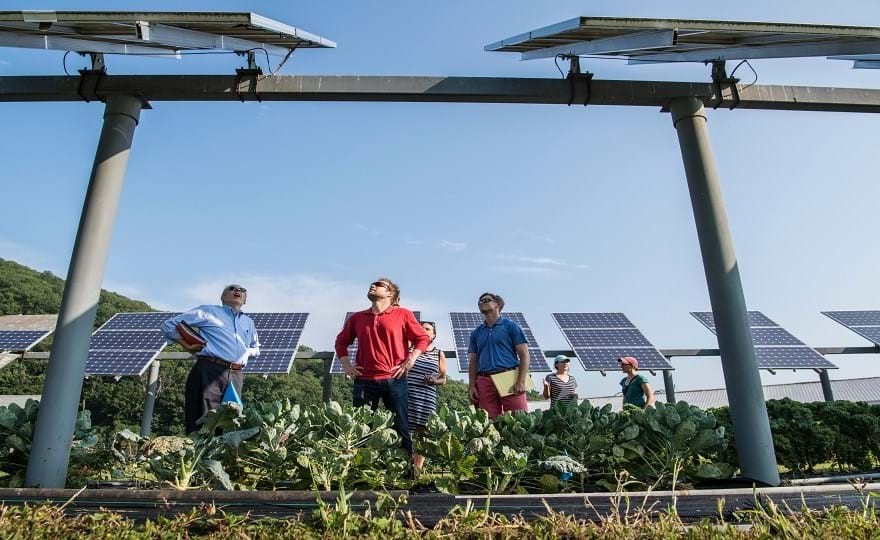ClientEarth Communications
22nd June 2020


ClientEarth is joining a legal case that could break commercial strongholds in the French energy market, clearing the way for an energy system based on renewable energy and citizen participation.
‘Community energy’, where people are directly involved in creating clean energy that they then consume, could be instrumental in meeting global climate goals – if governments play their cards right.
Between 2018 and 2019, the European Union published a series of laws known as the “Clean Energy Package”, to kickstart the transition away from fossil fuels towards cleaner energy.
With this new legal framework, the EU not only set a binding objective to increase renewables by 32% by 2030, it also established an explicit role for individuals and their communities in building a cleaner, more efficient energy future.
Europeans are now able to form ‘energy communities’ which means they can produce, consume, store and sell renewable energy, without being subject to punitive taxes or overly complex systems.
The new laws also require countries to assess any legal and administrative obstacles that prevent the development of these communities and to start dismantling those barriers to entry.
Our lawyers believe that France’s flagship energy legislation is at odds with the new EU laws.
The French Energy Code allows Electricité de France (EDF) and its subsidiaries Enedis and RTE to exclusively operate most of the country’s transmission and distribution systems.
This quasi-monopoly prevents the full participation of energy communities in these energy systems.
These are the arguments used in a case which was brought by a former Lyon Councillor and was heard by France’s highest administrative court on Monday 22 June. The former Councillor is challenging a contract that allows Enedis to dominate the electricity distribution market in the city of Lyon.
The case aims to remove legal barriers preventing the deployment of renewable energy, to allow people to create, consume and distribute their own electricity.
ClientEarth filed a successful intervention to participate in the case.
ClientEarth lawyer Raphael Soffer said: “Recent EU laws aim to transform our energy systems by boosting renewables and putting citizens at the centre of the transition to sustainable, renewable energy: this is the future, but current legal restrictions in France hinder this and that’s why we’re taking action.”
France is set to miss its 2020 renewable energy targets. Our lawyers believe this is a direct consequence of legal obstacles in the market.
If successful, the case will enable communities to pursue their own renewable projects. This may lead to an increase of renewable energy sources in France.
Soffer added: “If France is serious about its climate ambitions, it needs to start promoting renewable energy on the ground – which means making sure that individuals and communities can fully participate at all levels of the energy system. The French system must change."